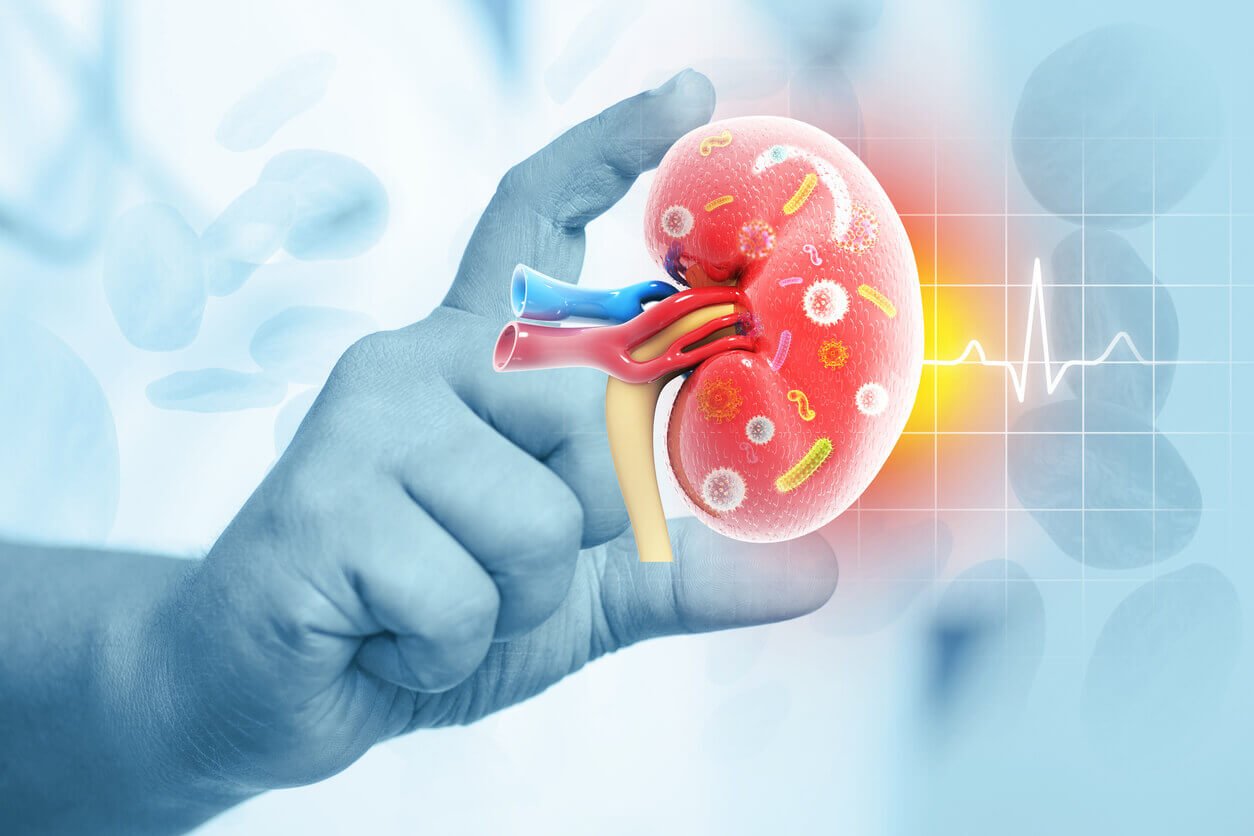Glomerulonephritis

Glomerulonephritis
Glomerulonephritis (GN) is a group of kidney diseases characterized by inflammation of the glomeruli, the tiny filtering units within the kidneys. This condition disrupts the kidneys’ ability to remove waste and excess fluids, potentially leading to complications such as chronic kidney disease (CKD) or end-stage renal disease (ESRD). Glomerulonephritis can be acute (sudden onset) or chronic (developing gradually). It may occur independently (primary GN) or as a result of another systemic disease (secondary GN).
Causes of Glomerulonephritis
1. Immune-Mediated Causes
- Post-Streptococcal GN: Develops after a streptococcal infection (e.g., strep throat or skin infection).
- IgA Nephropathy (Berger’s Disease): Caused by IgA antibody deposits in the glomeruli.
- Membranous Nephropathy: Autoantibodies attack glomerular structures.
- Lupus Nephritis: Associated with its systemic lupus erythematosus (SLE).
2. Infectious Causes
- Bacterial: Streptococcal infections, infective endocarditis.
- Viral: Hepatitis B & C, HIV.
- Parasitic: Malaria, schistosomiasis.
3. Systemic Diseases
- Vasculitis (e.g., Granulomatosis with Polyangiitis, Microscopic Polyangiitis).
- Goodpasture’s Syndrome: Autoantibodies attack kidney and lung basement membranes.
- Diabetes Mellitus: Can lead to diabetic nephropathy, a form of glomerular damage.
4. Other Causes
- Drug-Induced: NSAIDs, certain antibiotics (e.g., penicillin).
- Hereditary Factors: Alport syndrome, thin basement membrane disease.
Symptoms of Glomerulonephritis
Acute Glomerulonephritis Symptoms
- Hematuria (blood in urine, may cause visible or microscopic).
- Proteinuria (foamy urine due to excess protein).
- Edema (swelling in legs, face, or hands).
- Hypertension (high blood pressure).
- Oliguria (reduced urine output).
- Fatigue and malaise.
Chronic Glomerulonephritis Symptoms
- Persistent hypertension.
- Chronic kidney disease (CKD) signs (nausea, itching, muscle cramps).
- Anemia (due to decreased erythropoietin production).
- Fluid retention and edema.
- Progressive loss of kidney function.
Diagnosis of Glomerulonephritis
1. Laboratory Tests
- Urinalysis: Detects hematuria, proteinuria, and casts
- Serum creatinine & BUN (assess kidney function).
- Electrolytes (check for imbalances).
- ASO titer (for post-streptococcal GN).
- Complement levels (low in certain GN types).
- Autoantibodies (ANA, ANCA, anti-GBM for autoimmune causes).
2. Imaging
- Ultrasound: Evaluates kidney size and structure.
- CT/MRI: Rules out obstructions or tumors.
3. Kidney Biopsy
- Gold standard for definitive diagnosis.
- Helps identify the specific type of GN and guide treatment.
Treatment of Glomerulonephritis
1. General Management
- Blood Pressure Control: ACE inhibitors (e.g., lisinopril) or ARBs (e.g., losartan).
- Diuretics: Reduce edema (e.g., furosemide).
- Dietary Modifications: Low-sodium, low-protein diet if kidney function is impaired.
2. Immunosuppressive Therapy
- Corticosteroids (e.g., prednisone) for inflammation.
- Cyclophosphamide or Rituximab for severe autoimmune GN.
- Mycophenolate Mofetil (for lupus nephritis).
3. Treatment of Underlying Causes
- Antibiotics for post-streptococcal GN.
- Antiviral therapy for hepatitis-associated GN.
- Plasmapheresis for Goodpasture’s syndrome or severe vasculitis.
4. Advanced Therapies
- Dialysis for ESRD or acute kidney injury.
- Kidney Transplant in end-stage cases.
Complications of Glomerulonephritis
- Chronic Kidney Disease (CKD)
- Nephrotic Syndrome (severe protein loss).
- Hypertensive Crisis
- Cardiovascular Disease (due to fluid overload and hypertension).
- End-Stage Renal Disease (ESRD) requiring dialysis.
Prevention and Prognosis
- Early treatment of infections (e.g., strep throat).
- Regular monitoring of kidney function in high-risk patients.
- Prognosis varies:
- Post-streptococcal GN often resolves completely.
- Chronic GN may progress to ESRD.
